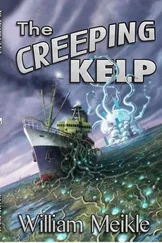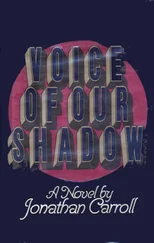I stood there for five or six heartbeats, looking at the broken lock. The door had been re-closed, or nearly so, and I couldn’t see inside. I glanced back across the landing at my neighbor’s door. That seemed untouched. He would be at work now, as would most of the people on the floor below. It was very quiet in the apartment building, and there was no noise coming from my room.
I set my bag of food carefully by the wall. Then I moved slowly toward the door, my hand dropping automatically to my side, where my sword normally hung. But I was in sweatpants, and had no weapon now.
When I reached the door, I waited, straining for any sound that might indicate the intruder was still inside. But beneath the ongoing thrum of traffic from the Tooting High Street hung a profound silence. I took a slow and careful breath, then pushed the door open and stepped in.
Whoever had been there was gone. The place was a mess—as it always was—and as far as I could see, looked the same as it had when I’d left it a few minutes before. Except for one difference that I spotted right away.
The ghost-jar was gone.
I stayed where I was. I didn’t move anything except for my eyes. For a long time I stood scanning the room. I surveyed it from the cluttered sink to the disordered bed, from the top of the open dresser to the stacks of equipment by the door. What else was different? What else had changed?
I looked at the table, where I’d slung my wallet the night before. The wallet was still there; it even had a couple of bills sticking out of it.
I looked at my rapier, propped against the back of the chair. A pricey Spanish blade that Lockwood had bought for me the previous summer. Still there.
I looked at my bags, stuffed with all the expensive paraphernalia of a freelance operative. All those salt-bombs and iron canisters, those cylinders of Greek Fire. You could get good money for those, if you knew the right people. But they remained precisely as I’d left them, completely untouched.
Nothing else had been taken. Just the skull.
Someone had come in, knowing the ghost-jar would be there, wanting it and nothing else. They’d taken it, and left. They’d done that during the (I made a rough calculation) ten or fifteen minutes I’d been out. So they’d been watching the building, waiting for me to leave. They’d known or guessed my movements. That bit wasn’t difficult, since I did the same thing almost every morning after a case. The guy in the Thai place pretty much knew me by name. Half the street probably knew I’d potter out to get food at some time in the morning.
But whoever had been here had known about the ghost-jar, too.
They knew about the skull, which was something I took pains to keep hidden.
Who knew about it? Lockwood and George, of course. And Holly, too: I’d told her about it months ago. What about Quill Kipps, last night? No—I’d been very careful. In any case, stealing didn’t seem Kipps’s style. So who else?
Who else had seen it?
I stood a long time, thinking.
Then I went back out into the hall and brought in my breakfast, which was still hot. After all, there’s no use wasting a good Thai.
After eating, I dried my hair properly, and changed into my work clothes. My coat smelled a bit of stale sweat and fear from the night before, but who was going to notice?
I put on my belt and made a cursory check of all its pockets. Not that I was expecting to use it against ghosts right then—I had a different quarry—but I needed it to hold my sword.
I picked up my rapier and strapped it on. Finally I glanced in the mirror, at my pale face and blazing eyes. Amazing what a theft does to you: all my previous weariness and befuddlement were gone.
With that, I left the room, pulling the door softly shut behind me.
A short walk south from the main compound of the Fittes furnaces in Clerkenwell was the paved, triangular space known as Clerkenwell Green, where tall lime trees sheltered a cluster of public benches, and a knot of sandwich bars and pubs serviced the needs of the furnace workers. Close by rose St. James’s Church, with its empty, pretty grass churchyard, which had been depopulated of graves since an outbreak of Phantasms decades before. On pleasant days, as the early shift ended and the Klaxon sounded from the furnace chimneys, a stream of orange-clad men and women emerged from the gates and descended on the green to have their lunch and wash the taste of burning from their tongues. Furnace operators, oilers, stokers, storage clerks, and ash-boys: all of them thronged together to join the human tide.
As did the attendants working the booths of the vetting room. Or so I was prepared to bet that morning.
By taking the Tube and walking swiftly, I had arrived on the green just before the lunchtime rush. I selected a bench not far from the lime trees, where I had a good view of the cafés and an ornamental ghost-lamp kept me in shadow.
Far off, the sirens sounded; I sat and waited, and watched the sidewalks. In dribs and drabs, the flow began. Within a few minutes, the quiet green, like a stream in snow-melt, had become a surging mass of activity. People filled the square; lines wound from the sandwich bars; birds flew in panic from the rooftops; pigeons frenzied over pastry crusts; every inch of every seat was packed. I sat where I was, impervious, unmoving.
The lunch hour proceeded; the lines dwindled. Discarded sandwich wrappers drifted like baby ghosts across the green. I waited without impatience. The vetting room attendants began their work at dawn, and would do another shift that afternoon. It was a long day. Food was necessary. Sooner or later, he would come.
And so it was that, at approximately 12:36 p.m., I saw a familiar freckled young man tripping swiftly down from Sekforde Street. He wore a raincoat over his jumpsuit, and his cropped fair hair was obscured beneath a knit cap. His fists were driven deep into his coat pockets, and his narrow shoulders were raised high. It seemed that Harold Mailer felt the cold.
I peeled myself off the bench and watched him go past. He crossed the green and disappeared into a baked potato joint, from which he presently emerged carrying a bulky paper bag. Looking neither right nor left, but going slightly more slowly now, he started back the way he had come.
I did not wait for him but went on ahead, walking up Sekforde Street at a brisk pace, until I located a small alley on the correct side of the road. It was dark, evil-smelling, and mostly filled with trash cans, which suited me very well. I ducked inside and waited, and soon came footsteps on the sidewalk that told me Harold Mailer drew near.
There may be praying mantises that can strike with greater speed. If so, I haven’t met them. One moment Mailer was meandering along in the bright spring sunlight, sniffing happily at the contents of his bag; the next he found himself pinned against the cold wet bricks of an alley with my knee in his groin and my elbow pressed against his neck.
“Hello, Harold,” I said.
He made a curiously squeaky noise that might have meant anything. I shifted my elbow slightly. The strangulated cough that followed wasn’t much better.
“Lucy! What are you…what are you doing?”
“Just wanted a word with you, Harold.”
“Can’t we do it at the booth? I’m late. Got to get back. My shift—”
“Couple of questions for you. Private ones. Best done quietly, down here.”
“Is this a joke?”
“This morning,” I said, “somebody stole something from me. They broke into my apartment and took a valuable ghost-jar, and the relic it contained. They didn’t take my money or any of my other valuables. Just the jar. No one knew about that jar, Harold. No one but you.”
Harold Mailer’s eyes had a hooded quality that made them look both sleepy and evasive. They flicked from side to side, as if seeking help, then steadied. He grinned at me, his top lip clammy with perspiration. “I don’t know what you’re talking about. I haven’t taken anything! Let go!”
Читать дальше









